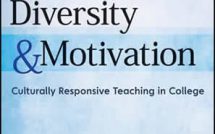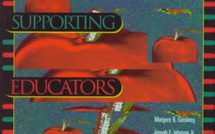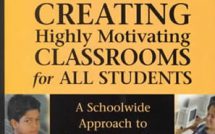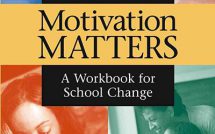Teaching Intensive and Accelerated Courses
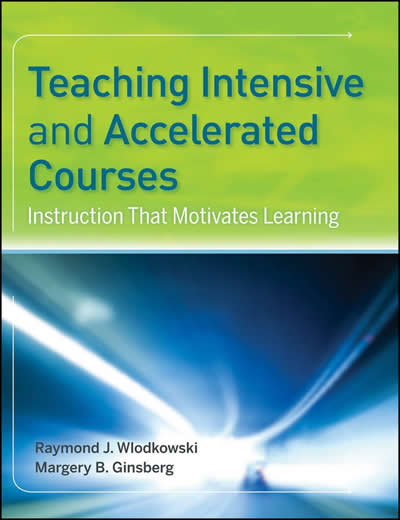 Teaching Intensive and Accelerated Courses: Instruction that Motivates Learning
Teaching Intensive and Accelerated Courses: Instruction that Motivates Learning
by Raymond J. Wlodkowski and Margery B. Ginsberg
In this comprehensive resource, Raymond J. Wlodkowski and Margery B. Ginsberg describe how to meet the challenge of teaching intensive and accelerated courses to nontraditional learners and working adults. By making motivation and cultural relevance essential to instruction, they clearly show what instructors can do to enhance learning in classes that can last from three to six hours.
Teaching Intensive and Accelerated Courses makes full use of the authors’ twenty years of experience researching and teaching accelerated courses, along with selected strategies from Wlodkowski’s classic Enhancing Adult Motivation to Learn, to offer tried-and-true practices instructors can use to provide continuously engaging learning.
Part-time teachers who work in accelerated degree programs are an enormous—and grossly underserved—group of adult education faculty. In this indispensable text, Wlodkowski and Ginsberg, two teachers with extensive firsthand experience of accelerated learning formats, provide an accessible, practical, and highly readable guide to engaging learners in these programs. Warm, wise, and down-to-earth, this will be an invaluable resource for teachers in these programs and for faculty developers everywhere.
Whether you are an experienced teacher of accelerated courses or about to become a new one, I can’t think of a better guide and standard-setter than this book. Wlodkowski and Ginsberg have created an instructional theory with practices that mirror the very principles and processes they advocate. Central to their thesis is the need to create conditions that will allow adults’ natural desire to learn to emerge; in my view, this perspective is often lost in adult learning courses in the name of efficiency or productivity. That is one of the many reasons this book is refreshing in both its approach and the values it espouses.
What a helpful resource for faculty professional development! The information is strategic without being formulaic. New faculty can use this book as a resource to design their materials and to use their existing skills to help adults learn. The parts of this book that focus on graduate students are extremely insightful.

